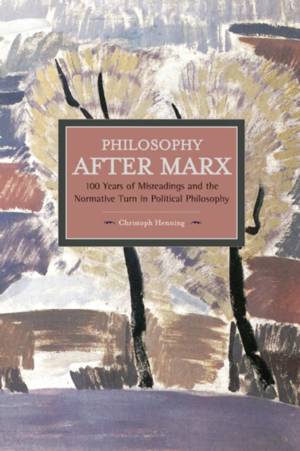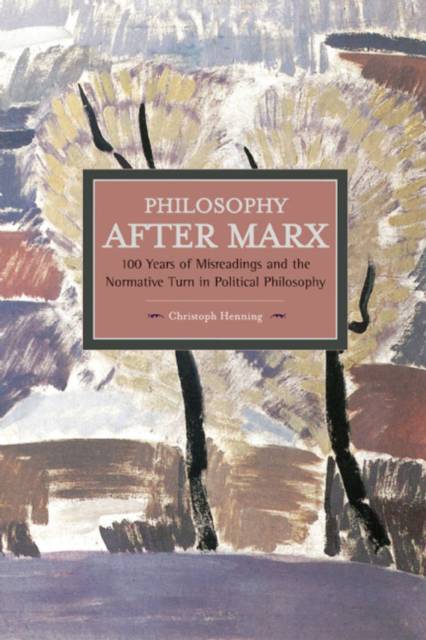
- Afhalen na 1 uur in een winkel met voorraad
- Gratis thuislevering in België vanaf € 30
- Ruim aanbod met 7 miljoen producten
- Afhalen na 1 uur in een winkel met voorraad
- Gratis thuislevering in België vanaf € 30
- Ruim aanbod met 7 miljoen producten
Zoeken
Philosophy After Marx
100 Years of Misreadings and the Normative Turn in Political Philosophy
Christoph Henning
€ 96,95
+ 193 punten
Omschrijving
Few would deny that Karl Marx was among the most influential philosophers of the 20th century. Yet, as Christoph Henning shows in this important new work, he was also among the most misinterpreted. Focusing on German philosophy from Heidegger to Habermas, and the influence of Rawls and Neo-pragmatism, Henning sketches a historical trajectory of the ways that misreadings in the fields of economics and sociology proliferated into further misreadings across a variety of fields, leading to an accumulation of questionable preconceptions. This historical analysis makes clearly evident where and how academic anti-Marxism first went wrong in their readings of Marx.
Specificaties
Betrokkenen
- Auteur(s):
- Uitgeverij:
Inhoud
- Aantal bladzijden:
- 660
- Taal:
- Engels
- Reeks:
Eigenschappen
- Productcode (EAN):
- 9781608464760
- Verschijningsdatum:
- 5/05/2015
- Uitvoering:
- Paperback
- Formaat:
- Trade paperback (VS)
- Afmetingen:
- 150 mm x 224 mm
- Gewicht:
- 907 g

Alleen bij Standaard Boekhandel
+ 193 punten op je klantenkaart van Standaard Boekhandel
Beoordelingen
We publiceren alleen reviews die voldoen aan de voorwaarden voor reviews. Bekijk onze voorwaarden voor reviews.








